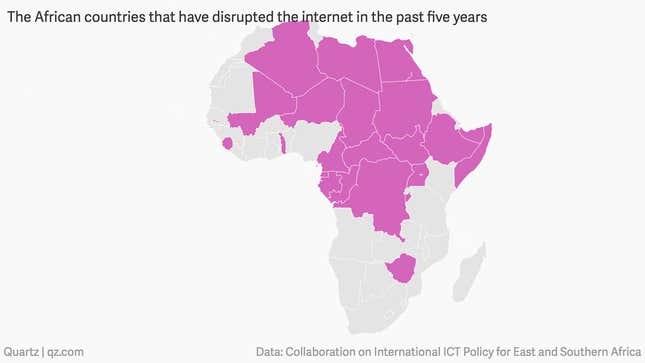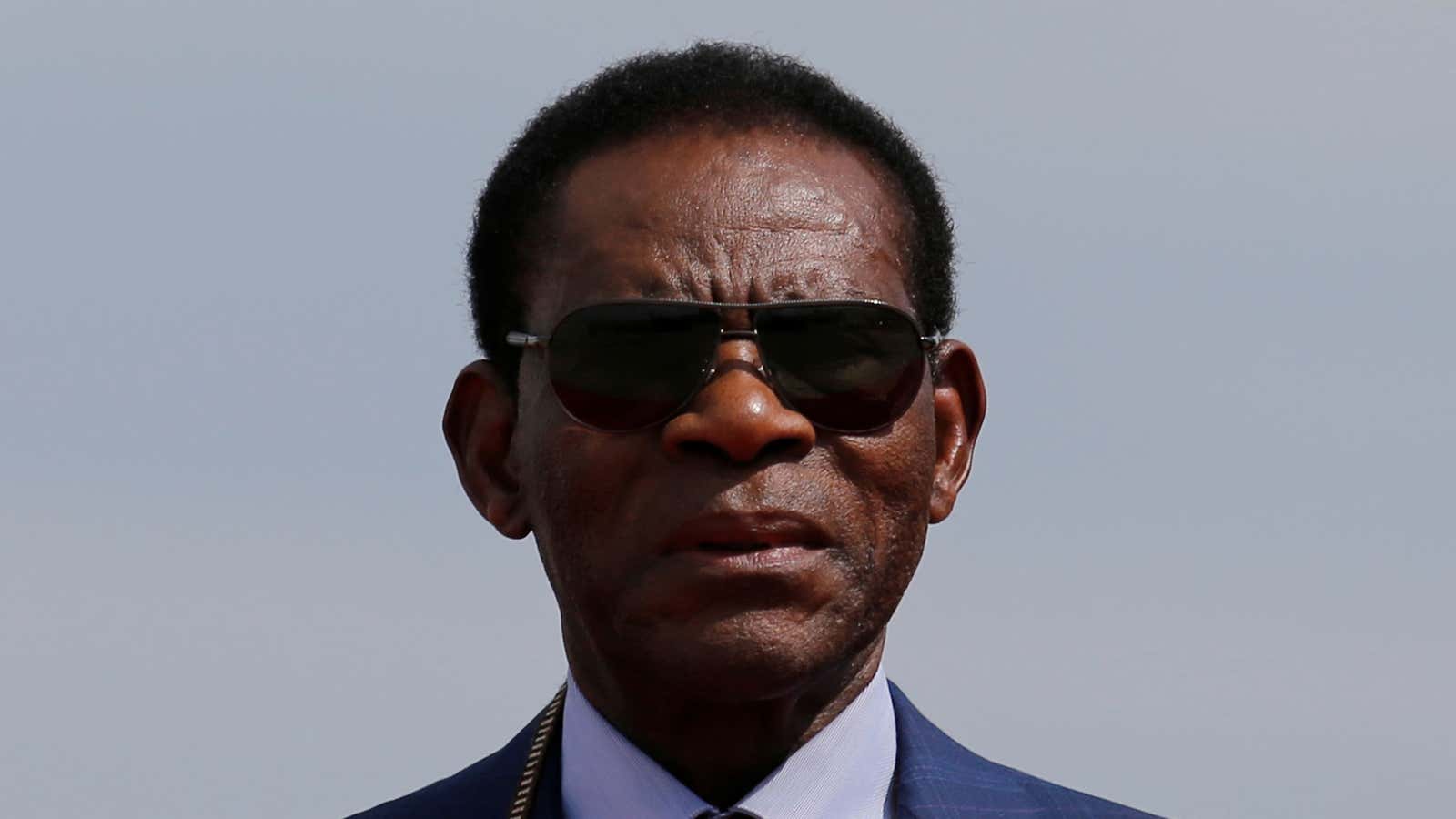Internet disruptions have become a mainstay in Africa, with five countries—namely Gabon, Sudan, Zimbabwe, Chad, and DR Congo—already blocking connectivity just three months into 2019.
Besides cutting access, a new study posits that all five nations share another crucial characteristic: authoritarianism. The report from the Collaboration on International ICT Policy for East and Southern Africa (CIPESA) notes that the less democratic a country is, the higher the chances of state-initiated shutdowns.
Using the Economist Intelligence Unit’s Democracy Index, the research center says that of the 22 African states that have disrupted connectivity over the past five years, 77% are listed as dictatorships, while 23% are considered partial democracies.
The research also shows that internet shutdowns are correlated with the longer a leader has stayed in power. This was again true of the African nations that have so far blocked the internet this year where presidents have either stayed in power for close to 30 years (Chad) or inherited power from their fathers who led for decades (Gabon and DR Congo). Besides, of the 14 African leaders who had been in power for 13 years and above as of January, 79% have ordered shutdowns mostly during tense election periods, anti-government protests, or coup attempts.

Recently, the affected nations have included Sudan, where president Omar al-Bashir is facing protests calling on him to step down. For almost a year now, president Idris Déby’s government has blocked access to social media platforms including Facebook, Twitter, and WhatsApp. 82-year-old Algerian president Abdelaziz Bouteflika’s government also shut down the internet this month as citizens called on him not to run for a fifth term. In 2017, the government of Africa’s longest-serving leader Teodoro Obiang blocked the internet ahead of crucial elections that were expected to keep the ruling Democratic Party of Equatorial Guinea party in power.
None of the nations categorized as “flawed” democracies including Botswana, Cape Verde, and Ghana, or as a “full democracy” (Mauritius), have ever ordered a network disruption. States like Djibouti and Eritrea, which are listed as authoritarian, are also yet to order internet disruptions, owing in part to already-existing “high-handed internet control measures,” according to CIPESA.
Building on previously existing evidence of the costly nature of shutdowns, CIPESA said the impact of government-directed blockages persisted far beyond the period of disruption. This is especially harmful, given that Africa is still the least connected region and has the most expensive internet prices globally.
The Kampala-based technology research center also warned of the “normalization of shutdowns,” as more governments justify cut-offs to prevent post-election chaos, or the spread of fake news and hate speech. This, they said, “could embolden even those that would otherwise have been very reluctant to disrupt digital communications to join the bandwagon.”
Sign up to the Quartz Africa Weekly Brief here for news and analysis on African business, tech and innovation in your inbox
